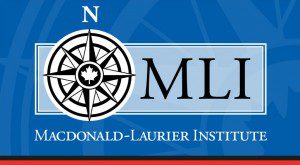 What if terrorists were behind the recent Egypt plane crash that killed all 224 passengers and crew? The implications are grim, writes Alex Wilner.
What if terrorists were behind the recent Egypt plane crash that killed all 224 passengers and crew? The implications are grim, writes Alex Wilner.
By Alex Wilner, the Ottawa Citizen, Nov. 11, 2015
It now appears likely that an act of terrorism destroyed a Russian charter jet that crashed in the Sinai Peninsula two weeks ago, killing all 224 passengers and crew.
On Monday, Egyptian investigators analyzing the plane’s black box revealed that they were “90 percent sure…a bomb” tore the aircraft apart. That adds credible weight to warnings issued by several countries over the past week. The assessment is a dramatic volte-face for the Egyptians and should put a definitive end to Russian hand-wringing. Both Moscow and Cairo were reluctant to use the ‘T’ word, preferring that the crash be pronounced an unfortunate accident.
The emerging picture is grim.
To date, analysis suggests that local Egyptian militants, possibly linked to the so-called Islamic State (also known as ISIS, ISIL, or Daesh), smuggled a bomb onto the plane. In the days preceding the crash, American intelligence picked up electronic “chatter” from Sinai-based militants discussing an attack on aviation. US satellites also captured a “large flash of light” – a telltale sign of an explosion – the moment the plane was destroyed. Intelligence pointing to foul play likewise convinced British Prime Minister David Cameron to halt all flights to the UK from Sharm el-Sheikh, Egypt, the doomed aircraft’s point of departure. Belgium, Ireland, the Netherlands, Germany, and others – including Russia – followed suit. Israel’s Defence Minister described the likelihood that terrorists destroyed the plane as “the highest of probabilities.”
And of course, Islamic State’s Egyptian affiliate – Wilayat Sayna, or Sinai Province – claimed responsibility for the crash on at least three separate occasions. “We say to the deniers and the doubters,” its latest missive boasts, “… [we] are the ones who brought [the plane] down. So go to the wreckage, search, bring your black boxes and analyze … and prove that we did not bring it down.”
If terrorists are to blame for the crash, three things need to happen next.
First, we need to know more about the bomb. Uncovering traces of the bomb’s ingredients should help investigators understand how the explosives were smuggled onto the plane. Terrorists have developed innovative ways to attack airplanes, from concealing bombs in shoes, undergarments, and electronic hardware, to developing less-detectable liquid and powdered explosives. Reports suggest that al Qaeda – borrowing a tactic perfected by drug traffickers – has even experimented with insertable body bombs.
It’s equally plausible, however, that more traditional explosives and methods were used. A bomb might have been hidden among the plane’s cargo. For that, militants would have had to recruit an insider among Sharm el-Sheikh’s airport or hotel staff. Either way, the more we know about the explosion, the quicker we can start backfilling security gaps.
Second, we need to know more about the perpetrators. If Sinai Province is truly behind the attack, it would be naïve to think of the bombing as an Egyptian problem alone. Terrorists learn from each other. Success breeds emulation. Sinai Province may be especially motivated to share the details of its latest atrocity with other IS franchises. Copycat attempts cannot be easily ruled out.
Third, we need to think about Egypt’s recovery. Like it or not, Cairo is on the frontlines of a regional conflict with Islamic State and other militant groups. This latest attack risks crippling Egypt’s tourism industry, which accounts for over 10 percent of its economy. Russia’s decision to suspend all flights to Egypt is a blow. One in five foreign tourists to Egypt is Russian. Brits make up the second-largest group.
In Egypt, tourism and security are indirectly linked. The former helps pay for the latter. A battered economy may not be top of mind at the moment, but the next major casualty of the Sinai attack may well be Egypt’s economic and political stability.
The ramifications of this week’s revelations in Sinai run deep. For Egypt, the risks include an escalating insurgency and greater instability. For Russia, blowback for its military campaign in Syria. And for the rest of us, renewed uncertainty regarding the strengths of our counterterrorism efforts and policies.
Alex Wilner is an Assistant Professor at NPSIA, Carleton University, and a fellow at the Macdonald-Laurier Institute in Ottawa.




